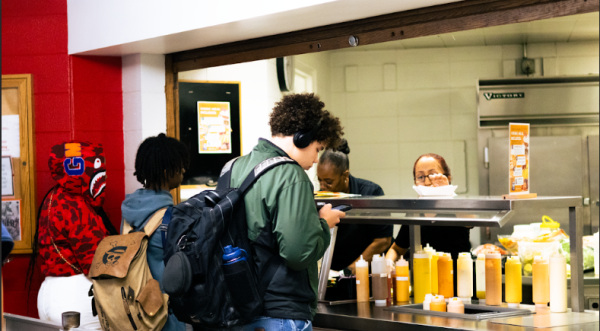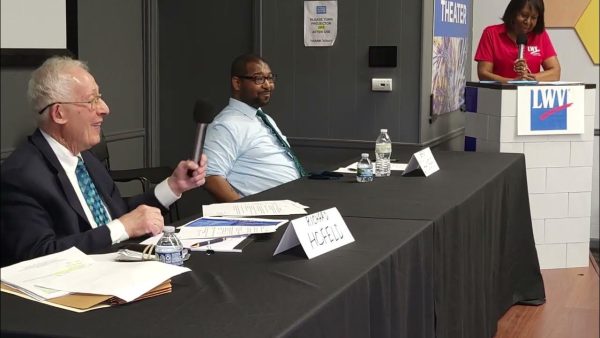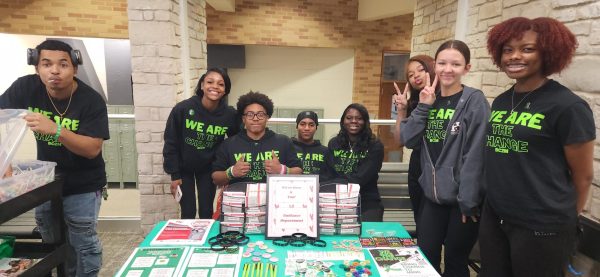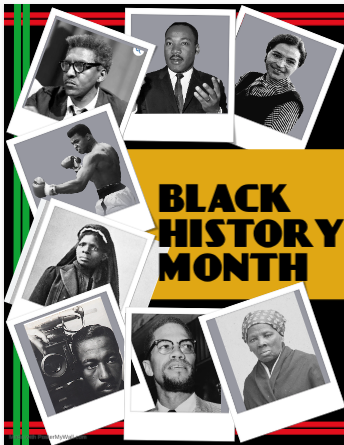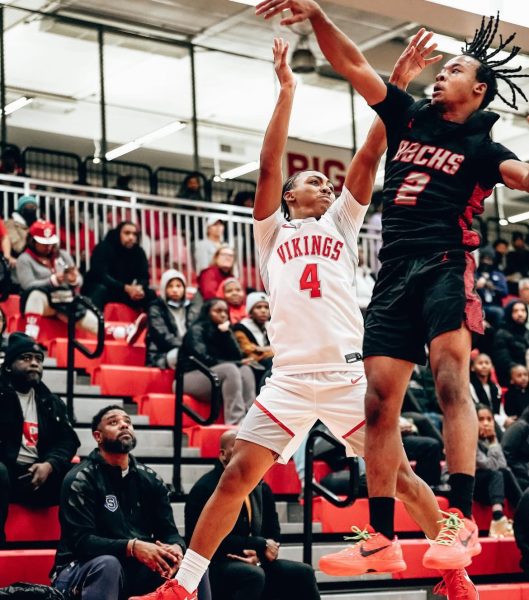Stunned!
Minority students react to Trump’s election
What started off to many as a joke a year ago became a reality last Tuesday.
After a close race with Democrat nominee Hillary Clinton, Republican Donald Trump officially won the President Elect.
Many interviewed here say they are upset and worried.
“When I realized that Trump is our next president, I was in complete shock,” senior Eunice Whang said. “I tried to perceive what it will be like to thrive in a nation under a man who is clearly misogynistic and professional narcissist.”
The Voyager made many attempts to interview Trump supporters for this story but none were willing to go on record.
As Trump’s team prepares their transition to the White House, thousands of protesters have stormed the streets nationwide. U.S. History teacher Paul Kolimas said he does not recall anything quite like this in the past and doesn’t know how long it will lasts.
“The protests could continue going a while, or they might eventually die down. I think a lot is going to depend on how Trump reacts,” Kolimas said. “If he immediately begins with making a lot of controversial moves, starts to appoint a lot of controversial people, or doesn’t reach out to the people who are hurting because of the election, then I would expect that the protests would continue.”
For many students this is a hard concept to grasp because President Barack Obama, a popular figure with many students, has served as president for most of their lives.
Senior Amber Haywood remembers the exact moment Obama was inaugurated.
“I was so emotional and I was only nine,” Haywood said. “Me and my mom made the 12-hour drive to D.C., and we stood outside and we watched Barack Obama get inaugurated. It was really the best moment of my life, and I still remember it.”
That happiness has now turned to fear.
“I’m just scared for my dad and my brother, just being black males in this society,” she said. “I’m scared for my niece who has to grow up at two years old seeing a man who discriminates against black people and women.”
During Trump’s campaign, he made many comments that African Americans and other minorities took as disrespectful or derogatory.
Early in his campaign, Trump called Mexicans ‘rapists’ and said he would deport millions of immigrants if elected. He also made controversial comments about Muslim Americans.
“I’m not an immigrant, but through my perspectives of being a Korean American, I couldn’t believe Trump’s bitterness and inconsideration towards immigrants,” Whang said.
After a group of his supporters assaulted an African American for chanting “Black lives matter!,” Trump responded the following day by saying, “Maybe [the protester] should have been roughed up. It was absolutely disgusting what he was doing.”
These actions have infuriated many minorities here and have them worried about the future of America.
“There is still racial injustice, gender bias, and hateful protests happening all over the nation,” Whang said. “Hence, I think that citizens will progressively become more attentive towards Trump’s actions in pacifying these issues and also towards his promise of ‘Making America Great Again’.”
Kolimas offers a way for Trump to to bond the two political parties.
“If he starts to reach out to some people, and makes attempts to bridge some gaps, then perhaps the protests will stop,” Kolimas said. “I can see him doing something to rebuild roads, bridges, and sewer systems because a lot of that needs to be done, and he can find common ground between Republicans and Democrats with that.”
Following Trump’s win in Wisconsin and Michigan, Haywood said she has had a change of heart about what colleges she will consider attending in the fall.
“The University of Michigan and Wisconsin were schools I was planning on applying to, but I don’t think I’m going to now,” Haywood said. “I’m definitely looking into more HBCUs, so I can feel more secure in my own blackness and safety on campus.”
Kolimas said Trump might have a way to bond the two sides.
“If he starts to reach out to some people, and makes attempts to bridge some gaps, then perhaps the protests will stop,” he said. “I can see him doing something to rebuild roads, bridges, and sewer systems because a lot of that needs to be done, and he can find common ground between Republicans and Democrats with that.”
While watching the election, many were confused with the results because Clinton won the popular vote.
According to Kolimas, this same frustration was seen during the 2000 election when the Supreme Court had the final say during a tight race.
“When George W. Bush was elected in 2000, he had won the Electoral college but lost the popular vote,” Kolimas said. “There was a lot of people who were upset at the Supreme Court back then.”


